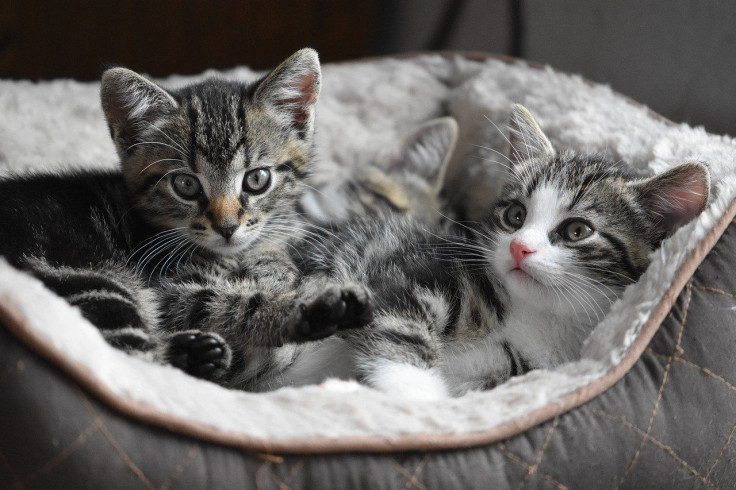Cats Also Benefit From Adoption By Families Of Children With Autism: Study
KEY POINTS
- Researchers looked at welfare of cats adopted by families of children with autism
- The screened cats "acclimated well" and displayed less stress over time
- The study shows how objective screening can help make successful matches
Past studies have shown that adopting shelter cats can help reduce stress and anxiety in children with autism, but how does it affect the cats' well-being? A team of researchers found that the cats may experience the same benefits, too.
Many cats in U.S. households live with families of children with autism spectrum disorder (ASD), the researchers of a new study, published this week in Frontiers in Veterinary Science, noted. Although the benefit of having companion animals in lowering stress and anxiety in children with ASD has previously been identified, "little is known" about the companion animals' welfare in their new homes.
"One in 54 children are identified as having ASD, and symptoms for these children include social, communication, and other behavior challenges," the researchers wrote. "These behavior problems could pose potential challenges for the well-being of cats."
While cats can adapt positively to "safe predictable" situations, they can also display some "problem behaviors" if the environment is stressful, the researchers said, noting that households with children can be quite stressful. As Gretchen Carlisle, lead author of the study and research scientist at the University of Missouri's (MU) College of Veterinary Medicine, said in the university news release, it is also important to have a look at whether the relationship is "burdensome" to the cats.
For their study, the researchers had a closer look at the welfare of 10 shelter cats that were adopted by families with at least one child with autism, MU noted. The cats had been screened and identified to have "calm and laid-back" temperaments and the families should not already have a cat in the home and no history of cat allergies or aggression toward an animal.
The researchers checked on the cats' welfare two to three days after being adopted, as well as at weeks six, 12 and 18. During these times, the researchers measured their weight, cat stress score and fecal cortisol.
"Cortisol is a stress measure we tracked through collecting samples of the cats' feces, and we noticed a significant decrease in cortisol over time," Carlisle said, as per the MU news release. "Cats also tend to lose weight due to not eating if they are stressed, but we found the cats actually gained a bit of weight initially after adoption and then maintained their weight as time went on, so both findings indicated the cats acclimated well."
Simply put, the cats in the study did not show signs of increased stress with their new families.
"In our study, we found the cats acclimated well to their new families and became significantly less stressed over time," Carlisle noted.
The results show evidence of success in the cat adoption of families of children with ASD when the cats' temperament has been screened, the researchers said. According to Carlisle, using "research-based, objective measurements for screening temperament may help increase the likelihood of successful, long-term matches."
Although the study's sample size is quite small, hence "it is not possible to make generalizations," the researchers noted that this can be a "starting point" for future studies on cat welfare.
"Our hope is that other scientists will build on the work of our exploratory study so shelter cats and families of children with autism might benefit," Carlisle added.

© Copyright IBTimes 2025. All rights reserved.






















